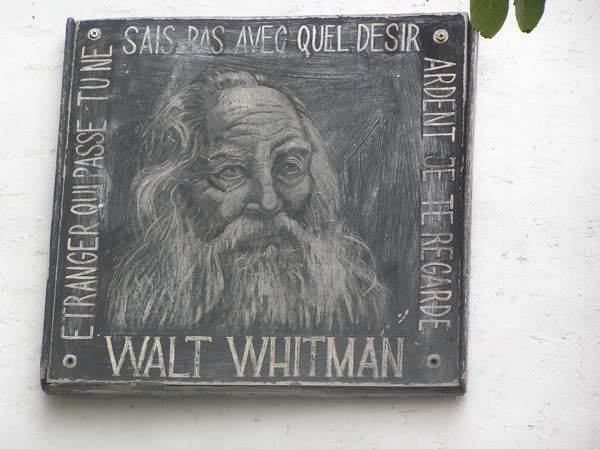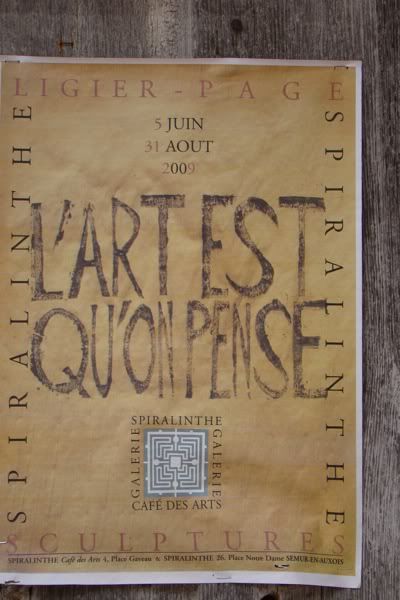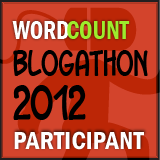Walt Whitman's Leaves of Grass was seen as trashy and obscene
(portrait from the wall of Shakespeare and Company, Paris)
It’s Banned Book Week. Do you know where your children are?
Yes, seriously. Well into the 21st century we still have to stand up for books. Of course, there’s the grand irony that Ray Bradbury’s Fahrenheit 451, a book about how far autocrats will go to prevent the free exchange of ideas will go, was itself a banned book.
I remember reading in my bedroom with the door closed age-inappropriate books like the novelized version of the 1967 Bonnie and Clyde movie or historical romances I found laying around the house. After each reading session I would slide it back onto the bedside table where I had found it. That fact that they were in the house at all, however, sent a message that there were no “bad” books. I left the children's library at a young age and moved upstairs to find gruesome stories of Jack the Ripper and Lizzie Borden. But I never knew anything would ever be off limits to me.
With so many real dangers in this world, I’m stymied by parents who will make it a mission to remove Harry Potter and his friends from schools. Do they really think their precious young children will convert to Wiccadom after finishing the life of the boy wizard? If we vigorously fight to take books off the shelves, how does that make us so different from the individuals who declared a fatwah on Salman Rushdie? No, we don’t put a price on Alice Walker’s head for writing The Color Purple, but when a community puts books off limits and removes them from a library shelf they are saying that these contain ideas that will contaminate a mind.
It seems, though, that all the controversial elements in Mark Twain’s Adventures of Huckleberry Finn need to be brought out into the open to discuss the world in which they were written. When you remove the disputed language in the recently expurgated edition of Twain’s masterpiece to make it “acceptable” for the classroom, you miss so many opportunities to talk about our own history and how we got to where we are today.
Twain, himself responded to one of the first attempts to ban his books when in 1905 he wrote a letter to the Brooklyn Library regarding their concern about his writing. In a very true-to-Twain understatement he said:
“I wrote Tom Sawyer & Huck Finn for adults exclusively, & it always distressed me when I find that boys and girls have been allowed access to them. The mind that becomes soiled in youth can never again be washed clean. I know this by my own experience, & to this day I cherish an unappeased bitterness against the unfaithful guardians of my young life, who not only permitted but compelled me to read an unexpurgated Bible through before I was 15 years old. None can do that and ever draw a clean sweet breath again on this side of the grave.”
Why should we care about books banned at libraries and schools? After all, if you want to read one you can just go buy it. Right? But what if you don’t have the money, or you live in a part of the country without bookstores? When books written with care and all seriousness, addressing the most important issues of an age, are forbidden for reasons of sexual themes, or violence, or language, or simply being contrary to some particular religious or political interpretation then where can our discussions about these issues begin?
Some books that you might be surprised to learn were banned are Bradbury’s Martian Chronicles, Louisa May Alcott’s Little Women (was Jo too radical a feminist for the age?), and Meg Cabot’s The Princess Diaries (yes, the book that was made into that delightful little movie starring Julie Andrews and a young Anne Hathaway – flaming radicals both).
So in recognition of Banned Book Week, I’m going to pull out a couple of oldies but goodies to read. Maybe a little Thoreau On Civil Disobedience and a real bit of extremism with Kate Chopin’s The Awakening. If you want to find some forbidden literature to read, look here and here. You might be surprised to find more of your childhood favorites on the list of dangerous books.
Come back and tell me about your favorite banned book or what experience you’ve had with censorship in your reading life.
Yes, seriously. Well into the 21st century we still have to stand up for books. Of course, there’s the grand irony that Ray Bradbury’s Fahrenheit 451, a book about how far autocrats will go to prevent the free exchange of ideas will go, was itself a banned book.
I remember reading in my bedroom with the door closed age-inappropriate books like the novelized version of the 1967 Bonnie and Clyde movie or historical romances I found laying around the house. After each reading session I would slide it back onto the bedside table where I had found it. That fact that they were in the house at all, however, sent a message that there were no “bad” books. I left the children's library at a young age and moved upstairs to find gruesome stories of Jack the Ripper and Lizzie Borden. But I never knew anything would ever be off limits to me.
With so many real dangers in this world, I’m stymied by parents who will make it a mission to remove Harry Potter and his friends from schools. Do they really think their precious young children will convert to Wiccadom after finishing the life of the boy wizard? If we vigorously fight to take books off the shelves, how does that make us so different from the individuals who declared a fatwah on Salman Rushdie? No, we don’t put a price on Alice Walker’s head for writing The Color Purple, but when a community puts books off limits and removes them from a library shelf they are saying that these contain ideas that will contaminate a mind.
It seems, though, that all the controversial elements in Mark Twain’s Adventures of Huckleberry Finn need to be brought out into the open to discuss the world in which they were written. When you remove the disputed language in the recently expurgated edition of Twain’s masterpiece to make it “acceptable” for the classroom, you miss so many opportunities to talk about our own history and how we got to where we are today.
Twain, himself responded to one of the first attempts to ban his books when in 1905 he wrote a letter to the Brooklyn Library regarding their concern about his writing. In a very true-to-Twain understatement he said:
“I wrote Tom Sawyer & Huck Finn for adults exclusively, & it always distressed me when I find that boys and girls have been allowed access to them. The mind that becomes soiled in youth can never again be washed clean. I know this by my own experience, & to this day I cherish an unappeased bitterness against the unfaithful guardians of my young life, who not only permitted but compelled me to read an unexpurgated Bible through before I was 15 years old. None can do that and ever draw a clean sweet breath again on this side of the grave.”
Why should we care about books banned at libraries and schools? After all, if you want to read one you can just go buy it. Right? But what if you don’t have the money, or you live in a part of the country without bookstores? When books written with care and all seriousness, addressing the most important issues of an age, are forbidden for reasons of sexual themes, or violence, or language, or simply being contrary to some particular religious or political interpretation then where can our discussions about these issues begin?
Some books that you might be surprised to learn were banned are Bradbury’s Martian Chronicles, Louisa May Alcott’s Little Women (was Jo too radical a feminist for the age?), and Meg Cabot’s The Princess Diaries (yes, the book that was made into that delightful little movie starring Julie Andrews and a young Anne Hathaway – flaming radicals both).
So in recognition of Banned Book Week, I’m going to pull out a couple of oldies but goodies to read. Maybe a little Thoreau On Civil Disobedience and a real bit of extremism with Kate Chopin’s The Awakening. If you want to find some forbidden literature to read, look here and here. You might be surprised to find more of your childhood favorites on the list of dangerous books.
Come back and tell me about your favorite banned book or what experience you’ve had with censorship in your reading life.
Art is what one thinks






![Grace [Eventually]: Thoughts on Faith](http://photo.goodreads.com/books/1166504427s/12542.jpg)









6 comments:
I grew up in a house where books--any kind-- were ours to read if we chose. My reading habits are mood driven, so what is in front of me depends on my mind set. All these books are on the shelves in my house, which my kids will pick up and read. I don't think a child should be banned from reading (but I know not every parent feels this way). I don't understand why this is, but I know it happens. I understood when I was young not to believe everything I read but rather to enjoy it become part of the story. I didn't have to believe in the message or the politics of a book. I could enjoy a story for the story.
Great post. Hoooyaaaa for all books...banned and otherwise. When I first heard that The Adventures of Huckleberry Finn was being sanitized to be more politically correct for the classroom, I thought it was a joke. It's sad that the "book ban-ners" don't have more faith in this generation's ability to understand what is right and wrong. More importantly, they are taking away the opportunity for them to work it out in their own minds, and instead are making up their minds for them.
Thanks for reminding me of The Awakening - just put it on my Kindle download list, have always meant to read it but never got a round tuit. :-)
You can keep kids (or adults) from reading specific books, but the ideas can't be stopped.
My favorite book of all time, the book that cemented my love of reading is Gone with the Wind. Margaret Mitchell. The second website you listed above says that "This Pulitzer Prize winning novel was banned from the Anaheim, Calif. Union High School District English classrooms (1978). The novel was challenged in the Waukegan, Ill. School District (1984) because it uses the word "nigger.""
Really? How in the world could someone write a book about the Civil War from a southerners point of view and not use that word? I have the same problem with the banning of Twain's books.
I don't like the word. I don't use the word. But it is part of our history and the culture of the day. I think allowing children to read books like this gives a teacher an opportunity to talk about words that they use that are just as bad, like "retard." I'm sure the control freaks are well-meaning, but I'm not sure they could be more disconnected from reality.
Or the word my own kids always used in high school -- "That's so gay." Yeah, Twain is definitely a "teaching moment." I believe that certain books are inappropriate for certain age groups, but not because a 12-year old will run out and become a sex fiend after reading Henry James. For the most part, if something is intellectually or linguistically beyond a kid, he or she will stop reading pretty quick. And as for writers like Judy Blume, well, she's just writing about the secret life of teenagers. It's not like they don't come in contact with this stuff.
Ok, soap box over.
If I didn't already love you so much, I would certainly love you after reading this post. I have nothing to add except that you took the words right out of my mouth. I have a poster hanging in my classroom. It is a quote by Bradbury, and it reads, "You don't have to burn books to destroy a culture. Just get people to stop reading them." I always have one or two students per year who ask me about that poster. I love getting deep with them. Many of the younger students, the freshmen, don't really get it, but some do, and it's a beautiful thing. I encourage them to be rebels, to check out the books under lock and key. If anything good comes from banned books, it's that teenagers by nature like to rebel, and if someone tells them they can't do something, like read a book, they'll be damned if they don't.
Post a Comment